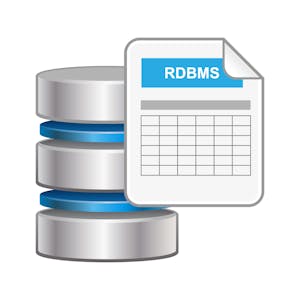Are you eager to delve into the world of data engineering? This beginner-level course, presented by IBM, provides a solid understanding of relational databases (RDBMSes) and their practical applications. Through a series of hands-on exercises, you will gain insight into various industry-standard databases such as IBM DB2, MySQL, and PostgreSQL.
Throughout the course, you will learn to design and manage tables using RDBMS tools like phpMyAdmin and pgAdmin, as well as command line and SQL statements. Real databases and real-world datasets are used to help you grasp the concepts effectively. The course culminates with a final assignment where you will showcase your ability to design a database for specific analytics requirements, normalize tables, create tables and views, and manage data.
Certificate Available ✔
Get Started / More Info
This course comprises four modules covering relational database concepts, using relational databases, MySQL and PostgreSQL, and a final course assignment, offering a comprehensive understanding of RDBMS and practical applications.
This module provides a comprehensive review of data fundamentals and delves into information and data models, types of relationships, and relational model concepts. It also introduces various industry standard relational databases such as IBM DB2, MySQL, and PostgreSQL, and their usage patterns. Hands-on labs and quizzes reinforce learning.
Module 2 focuses on using relational databases, covering types of SQL statements, creating and managing tables, data movement utilities, database objects and hierarchy, normalization, and relational model constraints. Hands-on labs and quizzes provide practical application and assessment of knowledge.
This module explores MySQL and PostgreSQL, providing guidance on getting started with these databases, creating databases and tables, loading data, using keys and constraints, and working with views. Hands-on labs and quizzes offer practical experience and assessment.
The final module guides students through the approach to database design, culminating in a final project where they will apply their knowledge to design a database for specific analytics requirements using ERDs. The module concludes with a final quiz and project submission. Hands-on labs provide practical application of learned concepts.
Data Engineering Foundations provides essential skills in Python, SQL, and Relational Databases for anyone aspiring to start a career in data engineering.
Aggregate Data in SQL using MySQL Workbench
Data Cleaning in Snowflake: Techniques to Clean Messy Data is a 2.5-hour guided project designed for business analysts & data engineers to master data cleaning...
Web Applications and Command-Line Tools for Data Engineering is a specialized course focusing on leveraging Python, Bash, and SQL techniques to tackle real-world...